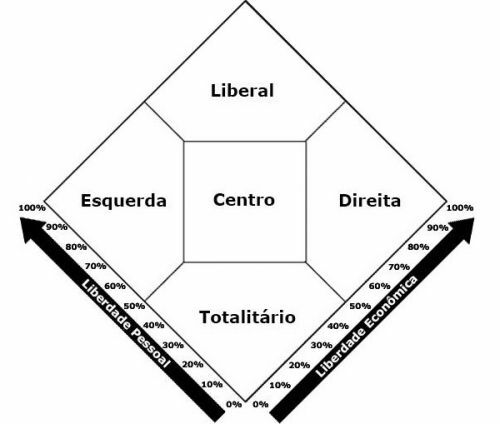Ideology, in a broad sense, means what would be or is ideal.
This term has different meanings, and in common sense it is seen as something ideal, which contains a set of ideas, thoughts, doctrines or worldviews of an individual or a certain group, oriented towards their social and political actions.
Several authors use the term under a critical conception, considering that ideology can be an instrument of domination that acts through persuasion; persuasion, not physical force, alienating human consciousness.
The term ideology was used prominently by the philosopher Antoine Destutt de Tracy and the concept was much worked on by the German philosopher Karl Marx, who linked ideology to theoretical systems (political, moral and social) created by social class dominant.
According to Marx, the ideology of the ruling class was aimed at keeping the richest in control of society.
In the 20th century, several ideologies stood out:
- fascist ideology implanted in Italy and Germany, it had a military, expansionist and authoritarian character;
- communist ideology disseminated in Russia and other countries, aiming at the implantation of a system of social equality;
- democratic ideology, appeared in Athens, in Ancient Greece, and has as its ideal the participation of citizens in political life;
- capitalist ideology it emerged in Europe and was linked to the development of the bourgeoisie, aimed at profit and the accumulation of wealth;
- conservative ideology they are ideas linked to the maintenance of society's moral and social values;
- anarchist ideology defends freedom and the elimination of the state and forms of power control
- nationalist ideology it is the one that exalts and values the culture of the country itself.
gender ideology
"Gender ideology" is a concept that has become popularly known, but care must be taken when using this expression when talking about gender issues.
It is important to know that, in this case, the expression is not the most adequate, since the word ideology means "set of ideas or principles about a subject".
What is gender?
Gender is defined as the way a person self-identifiesand you perceive yourself as an individual (male or female), which can happen regardless of their biological sexuality, that is, the sex they were born with.
There are theories that defend the existence of only two genders (male and female), but there are also studies that suggest the existence of a diversity of genres, which may go beyond these two concepts.
Researchers on the subject argue that identification with a particular gender is the result of a historical, social and cultural construction. According to these studies, the notion of gender would not be a choice made consciously.
Thus, identification with a gender would not be a personal choice, but the result of a sum of factors: a coexistence of a person with certain social and cultural values, in addition to the perception of their own identity.
To understand more about the subject, read also the meaning of gender ideology.
Ideology in Philosophy
Hegel approached ideology as a separation of consciousness from itself.
Marx used this Hegelian conception to differentiate two different uses of the concept of ideology:
- one that expresses ideology as causing the alienation of man, through the separation of consciousness;
- another that contemplates ideology as a superstructure composed of several representations that make up consciousness.
For Karl Marx, ideology masks reality. The thinkers following this school consider ideology as an idea, discourse or action that masks an object, showing only its appearance and hiding its other qualities.
Ideology in Sociology
Sociology describes an ideology as an association of representations and ideas that a given social group produces about its surroundings and its role in that environment.
There are political, religious, economic and legal ideologies. An ideology differs from a science because it is not based on an exact methodology capable of proving these ideas.
The group that defends an ideology often tries to convince other people to follow that same ideology. Thus, there are ideological clashes and consequently dominant (hegemonic) and dominated (subordinate) ideologies.
See also the meaning of alienation.



